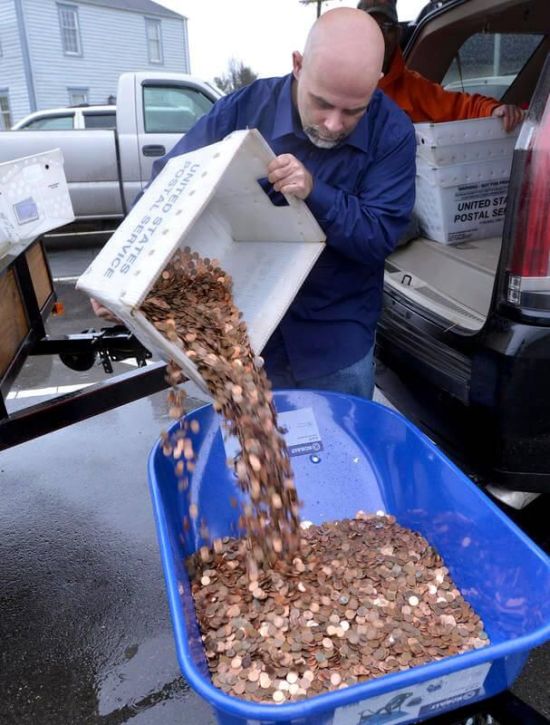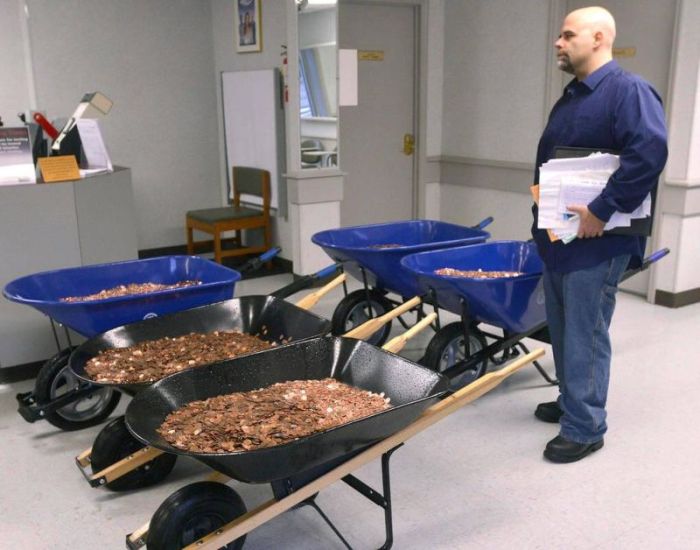Man Uses 300,000 Pennies To Pay The DMV (3 pics)
- Category: Pics |
- 17 Jan, 2017 |
- Views: 3266 |

 |
|
Nick Stafford of Virginia, USA, became frustrated with the DMV when he was trying to get information regarding where he should register his son's car. Nick had to make several inconvenient phone calls, and he still wasn't able to get an answer. So when the time came to pay the sales tax on two new cars he purchased, he decided to pay it using 300,000 pennies.




